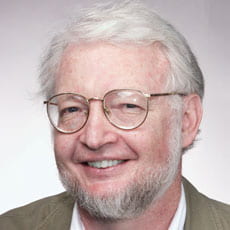Retired Staff
 Ron Kline
Ron Kline
Director — Retired July 31, 2020
The Sue G. and Harry E. Bovay Jr. Professor in the History and Ethics of Professional Engineering
Contact: rrk1@cornell.edu
Ronald Kline received a Ph.D. in the history of science from the University of Wisconsin–Madison in 1983, after working as an electrical engineer for the General Electric Company from 1969 to 1977.
He was director of the Center for the History of Electrical Engineering at the Institute of Electrical and Electronics Engineers (IEEE) in New York City from 1984 to 1987. Ron joined Cornell University as an assistant professor of the history of technology in 1987. In 2003, he was elected to be the first Bovay Professor of the History and Ethics of Professional Engineering at Cornell. He holds a joint appointment between the School of Electrical and Computer Engineering and the Science and Technology Studies Department in the Arts College.
He has served as president of the IEEE Society on Social Implications of Technology, editor of the IEEE Technology and Society Magazine, and as an advisory editor for IEEE Transactions on Education, IEEE Spectrum, and Isis. Ron is currently an advisory editor for the journals Social Studies of Science and Technology and Culture and is on the editorial committees of the Society for the History of Technology and the IEEE Society on Social Implications of Technology. He is also president -elect of the Society for the History of Technology.
Ron is the author of several articles on the history and ethics of engineering and technology and two books, Steinmetz: Engineer and Socialist (1992), and Consumers in the Country: Technology and Social Change in Rural America (2000). He is currently writing a book on the development of information theory, its applications to the physical and social sciences in the 1950s and 1960s, and discourses about an Information Age from the 1960s to the present.
The proud grandfather of four grandchildren (Ruth, Anders, Kate, and Kjell), Ron teaches graduate and undergraduate courses in the history and social implications of technology and engineering.

Park Doing, Ph.D.
Bovay Lecturer — Retired 2022
Contact: pad9@cornell.edu
Park Doing received his Ph.D. from the Department of Science and Technology Studies at Cornell University in May 2003. During his graduate student career Park had the good fortune of being awarded the Hacker/Mullins Prize from the American Sociological Association Section on Science, Knowledge, and Technology and the Mullins Prize from the Society for the Social Study of Science for best graduate student paper for his paper “‘Lab Hands’ and the ‘Scarlet O’: On Models, Identities, and Performances” which was an ethnographic account of technical practice at a modern synchrotron laboratory. The paper was part of his dissertation, titled ‘Velvet Revolutions: Accounting for Epistemic and Political Change at a Modern Physics Laboratory amid the Second Rise of Biology in Synchrotron Science’. The book based on his dissertation, Velvet Revolution at the Synchrotron: Physics, Biology, and Change in Science, was published in 2009 by MIT Press.
Park received both his B.S. (’88) and M.Eng. (’93) in Electrical Engineering from Cornell University Space Plasma Physics Group. His Master’s degree project was to design and fabricate a matched filter for the Cornell University Portable Radar Interferometer system. He has worked as a design engineer for NCR corporation in Dayton, Ohio, Ithaca, NY, and Paris, France from 1988 to1991. And, he has worked as a manager and technical staff member at the Cornell High Energy Synchrotron Source from 1992 to1999. In the course of working at NCR and at the lab, he has published several technical papers and been awarded three patents.
In the Bovay Program, Park teaches ENGRG 3600: Ethics in Engineering Practice, ENGRG 2750: Ethics of Autonomous Intelligent Systems, lectures in the ENGRG 1050 Introduction to Engineering sections, and has taught classes on computing culture, environmental ethics, and the social study of science and engineering. Park’s current research is on ethical implications of intelligent systems, especially as they relate to the humanities.
